The great flower is a wonderful invader and liquidator (11 photos + 1 video)
Victoria Amazonis is a lovely and gigantic plant that the Incas called Antun Sisak (“great flower”). The botanist John Lindley, who discovered the species in 1837, named the water lily in honor of the then young and beautiful Queen Victoria of Great Britain, who had recently ascended the throne. 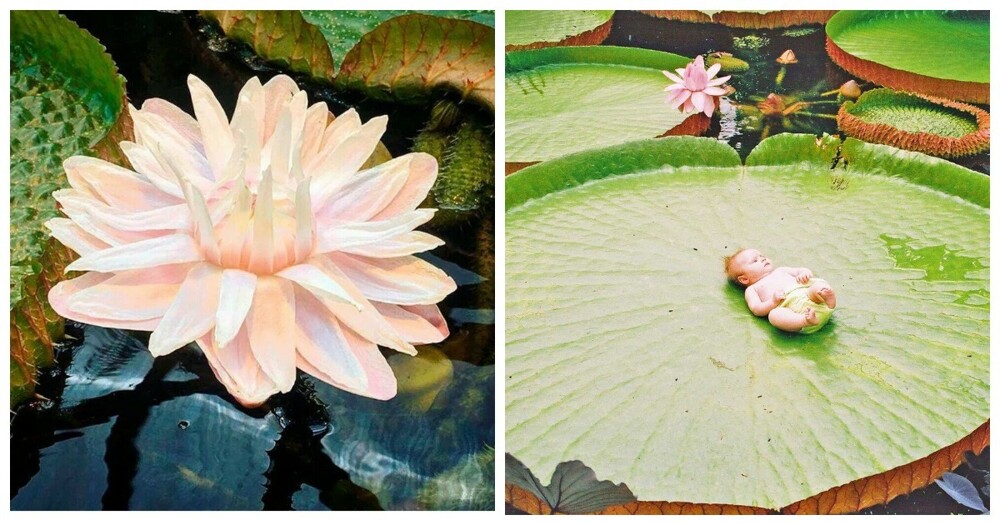
But in reality, this inhabitant of Guyana and the Amazon is far from being so simple and clearly proves that form and content do not always correspond to each other. 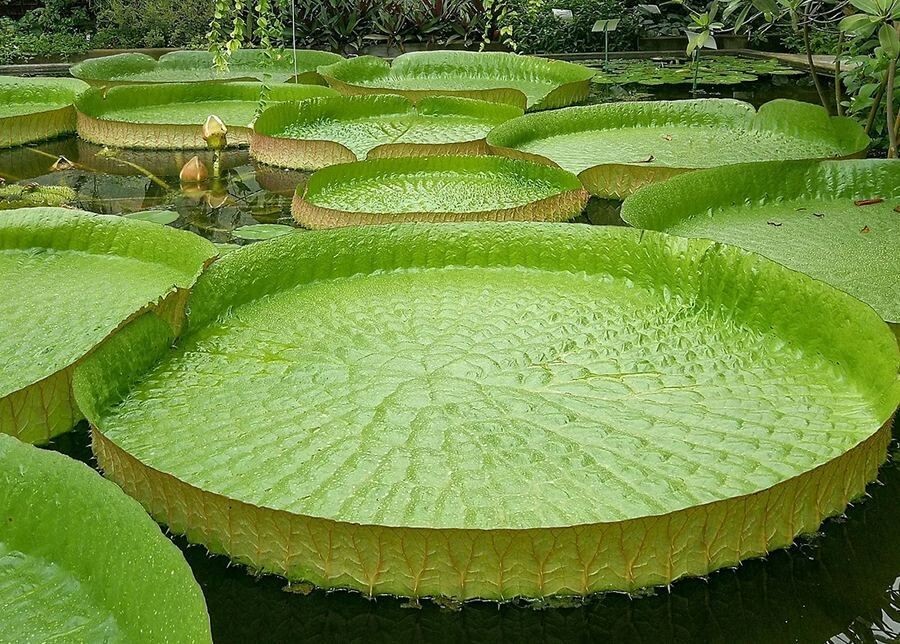
A representative of the water lily family, until 2022, was considered the largest water lily in the world. Which is logical, because the leaves of Victoria Amazoniana or Victoria regia, as it is also called, can reach a diameter of three meters. And thanks to the plant, a person of quite normal size can find himself in a fairy tale and feel like Thumbelina, sitting comfortably on a water lily leaf. 
Coat of arms of Guyana
By the way, the population of Guyana, where the lily is even present on the coat of arms, used this feature for quite practical purposes: they were transported on leaves across small bodies of water. This can be done without problems if the load is distributed correctly. 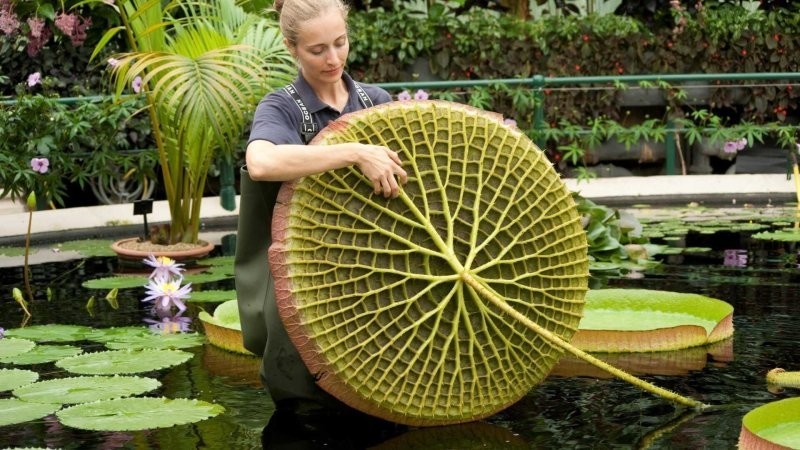
Victoria blooms literally three days a year. Moreover, a beautiful flower, the diameter of which can reach 30 centimeters, appears above the water only at nightfall. When it gets light, he hides under water. On the first night of flowering it is snow-white, on the second it is soft pink, and on the third it acquires a bright crimson and even purple color. After this, it goes under water forever and forms a large fruit, which produces small dark seeds.
Due to this feature, the Indians even have a legend about the appearance of this water lily. The leader's daughter passionately desired to become a star - the sister of the night celestial body. She asked the moon to transform, but she remained deaf to the beauty’s pleas. As a result, the girl could not stand it and drowned, throwing herself into the reflection of the moon in the water. And she became a star, but not a heavenly one, but a water one - a beautiful lily. 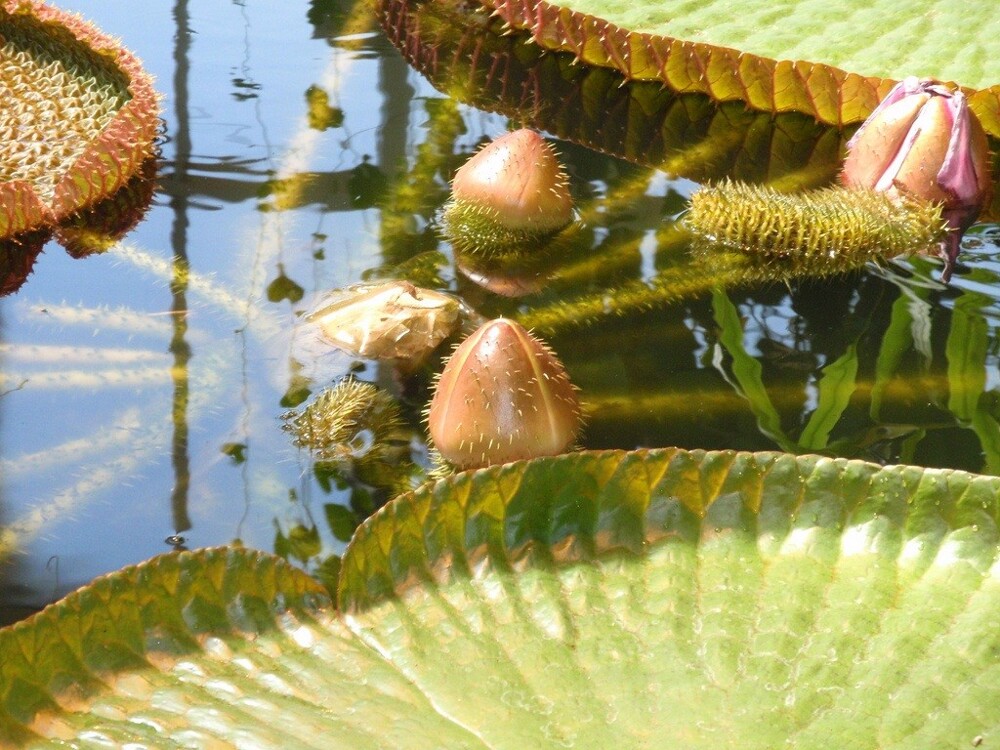
Despite its apparent tenderness, the flower, in an attempt to seize additional territory, behaves like a real aggressor. First of all, the leaves do not sink thanks to special hollow ribs. They get rid of excess moisture through special holes. 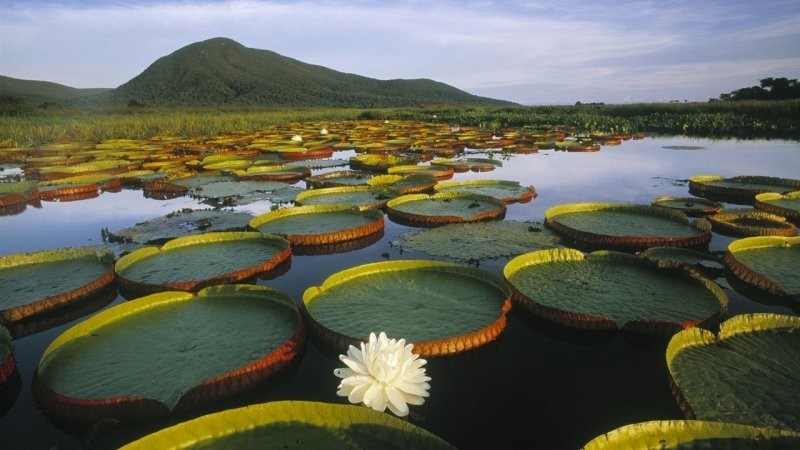
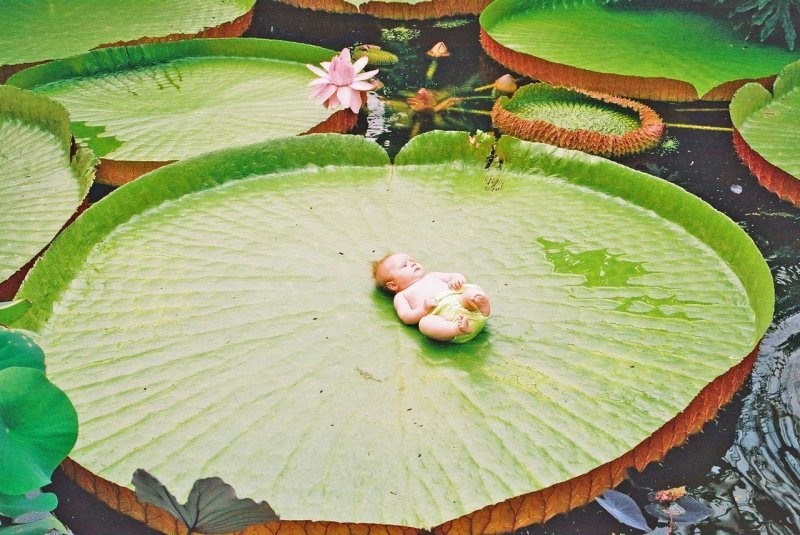
And from competitors, including living ones, with the help of small sharp thorns. Those who want to feast on the tender flesh of fish and other aquatic herbivores, when they come across them, immediately lose such desire and look for a more accommodating and defenseless source of food. 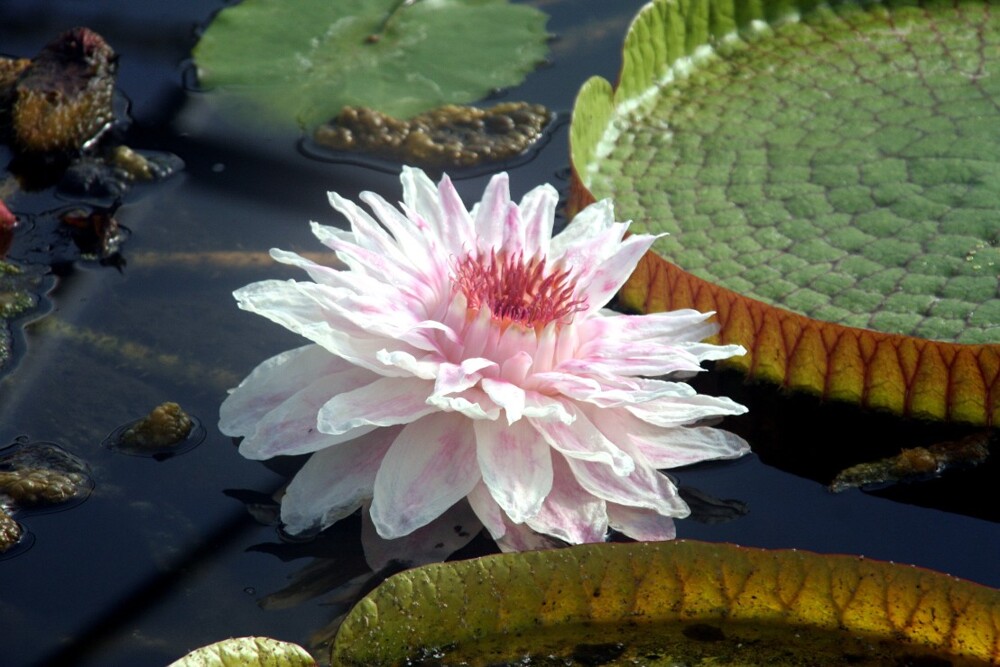
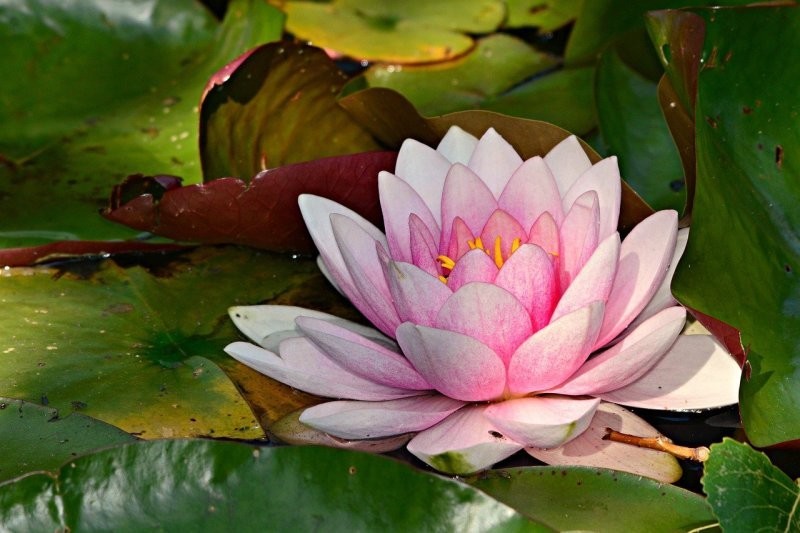
Young water lilies use them to damage other plants that compete for space and resources. And they even have the ability to swing their buds and stems as they grow in order to free up the necessary area for themselves. 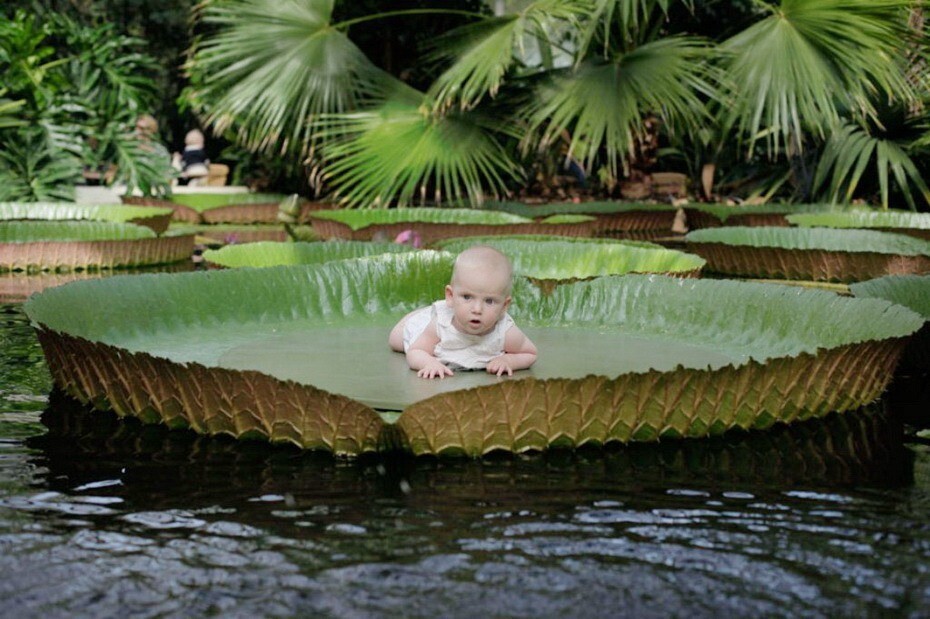

Crystal Palace
Despite its insidiousness, the water lily has become the most popular plant for cultivation in home artificial ponds. Plus, it is also a source of inspiration for architects, and images of ribbed leaves were even used in the architecture of the Crystal Palace, built in Hyde Park in 1851.






























